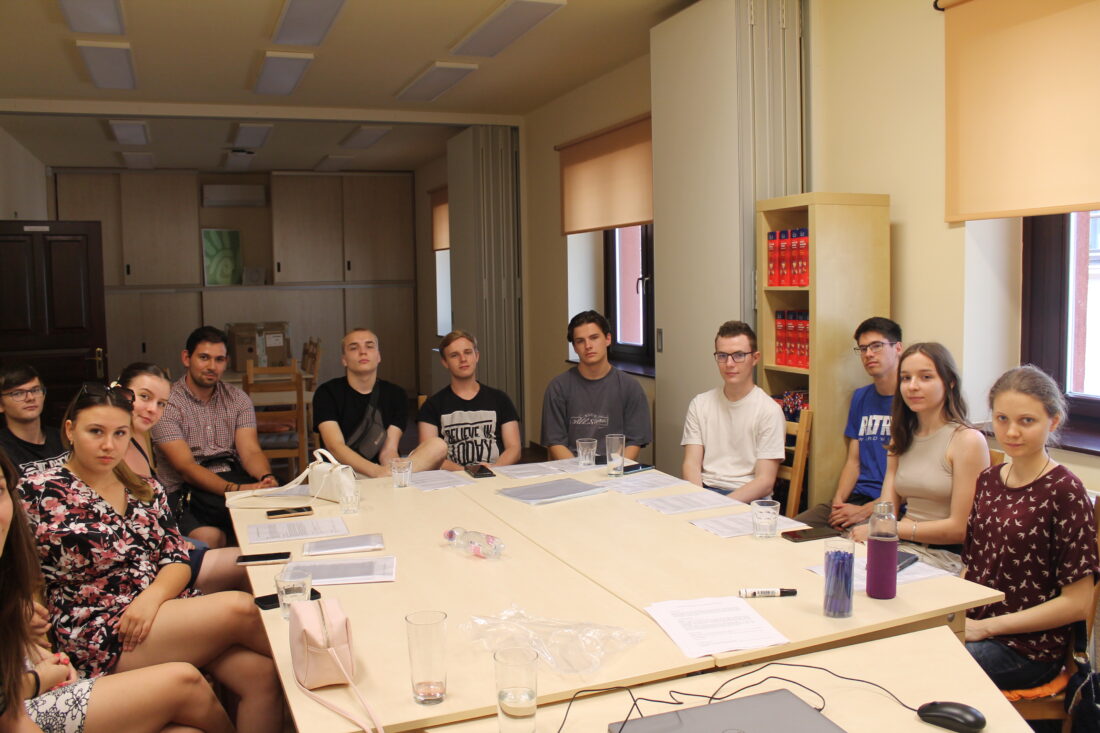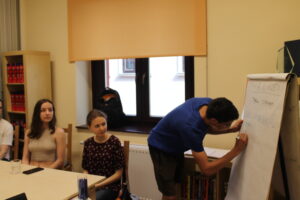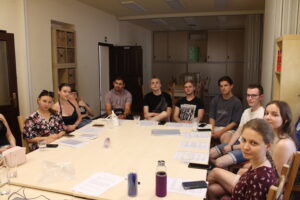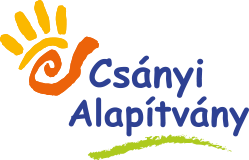
Mentor Assistant Leader Training
Pécs Group 2 gathered for their final session this year at the Pécs Community House after a joint breakfast. Our program was titled “Mentor Assistant Leader Training.” This took place within the framework of an interactive lecture given by our mentor. András bá’ shared nearly 50 camps’ worth (almost a year’s) of experience with us. At the beginning of the session, we freely outlined what attributes we think a good leader – a mentor assistant – should possess. By comparing these and drawing conclusions, we created a model/ideal character that we aim to become as mentor assistant this summer.
I will highlight just a few thoughts, as a good businessman never reveals all his secrets 🙂
A good leader is a ROLE MODEL because, for example, in a camp setting, the children do not yet have fully developed characters or a sense of identity. They are still in the pre-logical phase, where they need to draw from someone to stabilize and form their personality. It is much easier if we behave in a way that leaves no room for complaints. For example, we do not make exceptions for ourselves and show up exactly at the agreed place, as the children will do the same. A good leader is flexible; he can handle the most unexpected situations, WEIGHS OPTIONS, and DECIDES; however, how he does this matters. A good leader COMMUNICATES; primarily with his superior, and secondarily with the participants. He is empathetic; he asks for the participants’ opinions, which not only earns him respect but also makes the participants feel addressed, thus improving the mood and atmosphere. A good leader is POSITIVE; a true TEAM PLAYER; he does not blame others but pulls the team on his shoulders. He motivates; after all, how can he expect everyone to enjoy the camp if he is lethargic himself? And most importantly – a good sense of HUMOR can always lighten the mood!
Behind these principles, of course, lies hard psychology and sociology, of which we also received a small taste. If most of the group were not taking their final exams next week, I am sure we would have listened collectively until morning or organized a similar weekend, but due to time constraints, we only touched on these areas superficially. After gathering theoretical knowledge from five different sources, András bá’ supported the points with numerous practical examples.
We discussed assessing group dynamics; the stages of group development; leadership types and which is ideal when (democratic, dictatorial, laissez-faire); the psychological background of children’s behavior; games that can lighten the mood at any time; counterexamples that many make; and we also acted out a few classic situations and brainstormed together on what each of us would do in a given situation.
The day ended with a joint Italian pizza and spaghetti lunch by popular request. I think this day was worthy of us partly bidding farewell to each other and the Community House. Now we step into the summer camps as mentor assistants, prepared. We thank the Foundation for its support so far and hopefully, we can also support the children entrusted to us.
András Dömölki, Pécs Group 2




